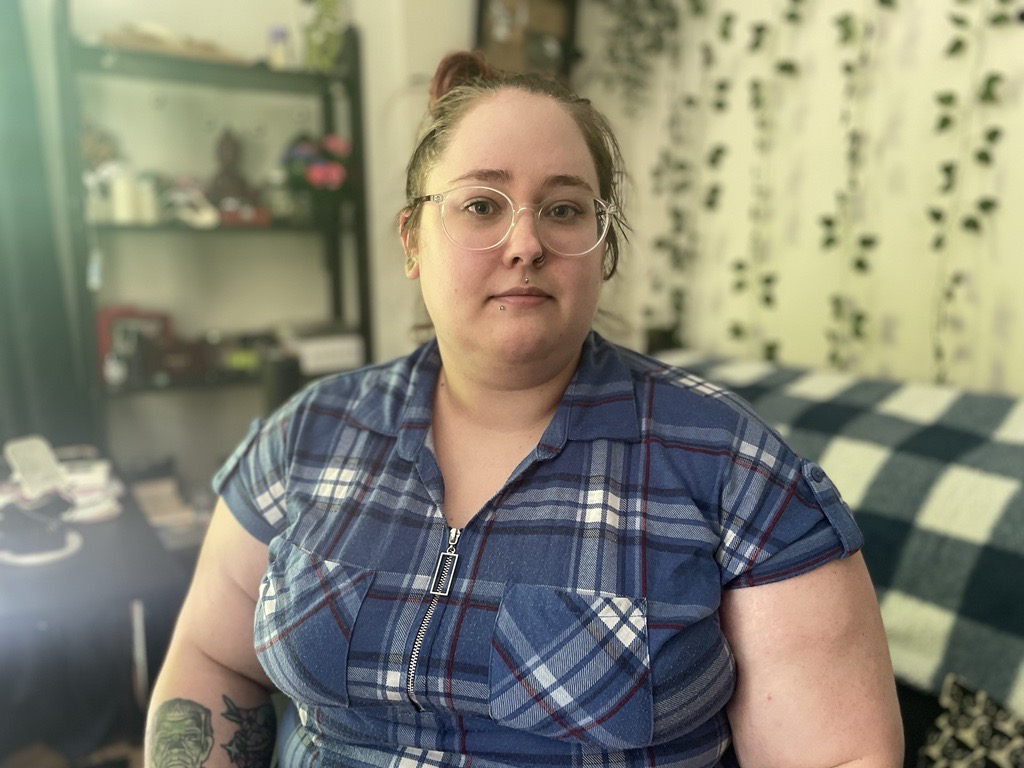A Halifax-area woman is looking for a new home after her fixed-term lease was not renewed and she refused to pay a hefty price increase to stay in her unit.

Sarah Whynot is packing up her downtown Dartmouth apartment in anticipation of a move at the end of the month. Her lease with HarbourVista Apartments was not renewed this year, after five years of fixed-term leasing.
“I just need to find a new place to live within, like, two-and-a-half weeks,” Whynot told Global News. “I need to be out by June 30, and it’s impossible to find somewhere right now.”
Unlike periodic leases — such as month-to-month or year-to-year — fixed-term leases have fixed start and end dates, meaning they are not automatically renewed.

Fixed-term leases can be one way for landlords to skirt the province’s two-per cent rent cap, since the cap does not apply to new tenants. The rent cap has been two per cent since 2020, but will go up to five per cent in January 2024.
Whynot was given the option to stay and continue leasing, but only with a rental increase that far exceeds the cap.
“I asked about the rental increase and I was told, basically, it would be between $400 to $600, maybe more,” she said.

Get breaking National news
“I questioned it because of the rent cap, and then a week later — not even — a notice on my door saying, ‘We’re not having you. You need to leave by June 30th.'”
She said the original note left at her front door asked for more than a 50 per cent rent increase, changing from $1,100 to $1,700 a month.
“I though my rent would maybe go up $22, not $600. No one can afford that,” she said.
Whynot took her complaints to the Nova Scotia tenancy board and small claims court, but she was dismissed. The given reason was that a landlord has no obligation to renew a fixed-term lease and the rent cap does not apply if the landlord elects not to renew or sign a new lease.
The property manager for HarbourVista Apartments, Sharon Campbell, said in a statement: “This was a fixed term lease. Landlords are not required to extend their stay.
“The cap of 2% is still in place for yearly leases or month to month leases. Landlord and tenant board as well as small claims court have both decided in the landlords favour,” Campbell wrote.
Whynot said she’s now forced to begin looking for other housing — a difficult feat in a one-per-cent vacancy market — or move back to her hometown of Bridgewater, an hour-and-a-half away.
“I have a job down here. If I leave (my apartment), then there’s nowhere to go here,” she said. “I have to move home with my parents, I lose my job and, basically, lose my freedom.”
‘Everywhere wants fixed-term leases’
In a statement, a spokesperson for Service Nova Scotia, which is in charge of the Residential Tenancies Program, said the province is “always working to balance the rights and needs of tenants and landlords.”
The statement said they could not speak to the tenant’s individual circumstances, but said the cap applies to periodic leases and month-to-month leases. It also applies to fixed-term leases, “where a new fixed term lease is signed with the same tenant for the same unit.”
“The landlord can renew the fixed-term lease but they don’t have to. If they renew, it must be within the rent cap,” the statement said.
It said the government is reviewing how fixed-term leases are being used by landlords and “any changes to fixed-term leases would need to be made through legislation.”
Meanwhile, Whynot is stressed about being subjected to the whims of an extremely competitive rental market.
“There’s so many scams out there right now, people wanting money up front, people wanting astronomical prices,” she said, adding that she has a cat which is making it even more difficult to find a home.
“And everywhere wants fixed-term leases, and that’s just not really an option.”
— with files from Alex Cooke











Comments
Want to discuss? Please read our Commenting Policy first.